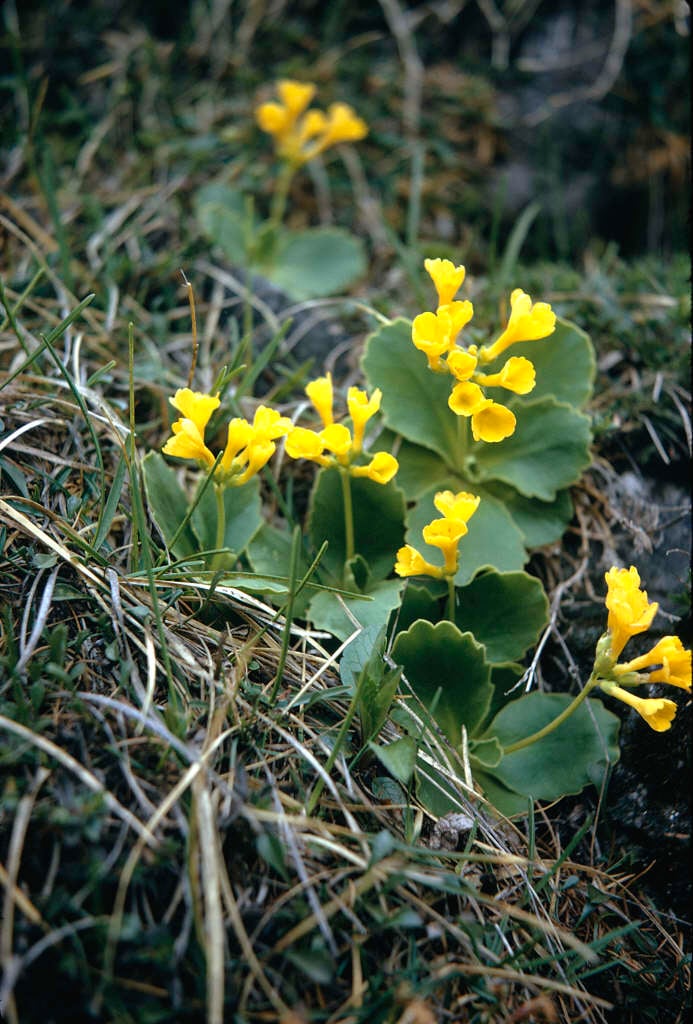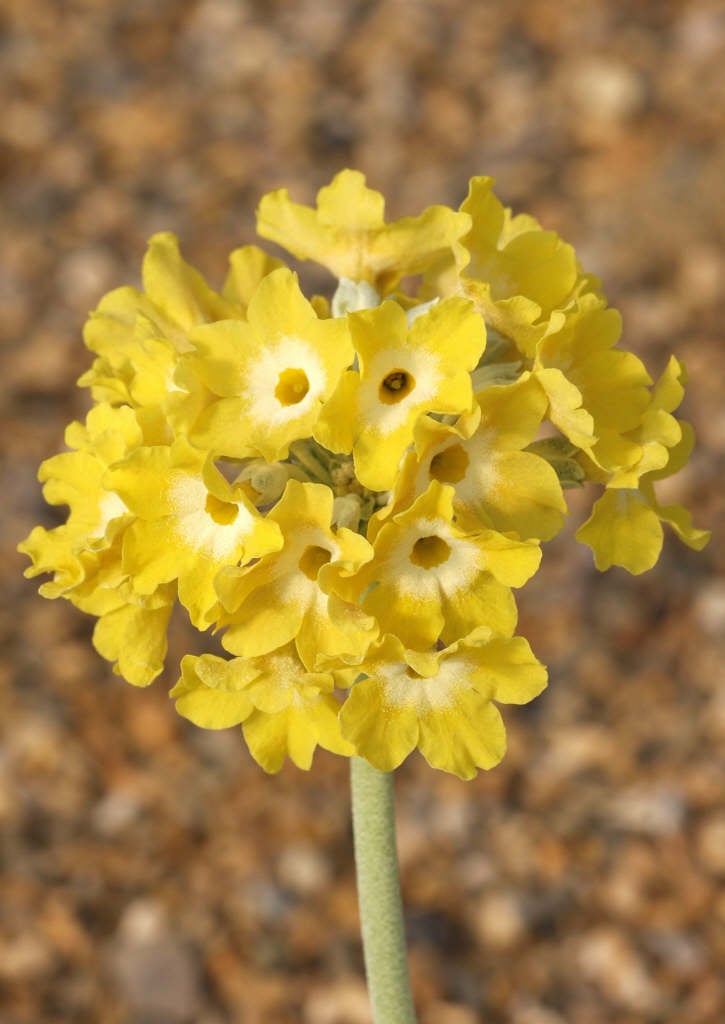Size
Ultimate height
0.1–0.5 metresTime to ultimate height
2–5 yearsUltimate spread
0.1–0.5 metresGrowing conditions
Moisture
Moist but well–drainedpH
Acid, Alkaline, NeutralColour & scent
| Stem | Flower | Foliage | Fruit | |
| Spring | Yellow | Green | ||
|---|---|---|---|---|
| Summer | Green | |||
| Autumn | Green | |||
| Winter | Green |
Position
- Full sun
- Partial shade
Aspect
South–facing or East–facing
Exposure
Exposed or Sheltered Hardiness
H5Botanical details
- Family
- Primulaceae
- Native to GB / Ireland
- No
- Foliage
- Evergreen
- Habit
- Clump forming
- Potentially harmful
- Skin allergen. Wear gloves and other protective equipment when handling
- Genus
Primula are herbaceous or semi-evergreen perennials, forming a basal rosette of simple leaves, with salver-shaped or bell-shaped flowers which may be solitary or carried in an umbel or in whorls on an erect stem
- Name status
Correct
- Horticultural Group
- Auricula section primulas are evergreen perennials with leathery, often farinose foliage and simple umbels of salver-shaped flowers which are usually pink, purple or yellow
- Plant range
- Europe
How to grow
Cultivation
Grow in moderately fertile, moist but well-drained, humus-rich soil in full sun or partial shade. Can also be grown in pots in an alpine house
Propagation
Propagate by detaching offsets in autumn or early spring
Suggested planting locations and garden types
- Cottage and informal garden
- Gravel garden
- Rock garden
- City and courtyard gardens
- Patio and container plants
- Flower borders and beds
- Garden edging
Pruning
No pruning required but deadhead after flowering, and remove dead or damaged leaves as necessary
Pests
May be susceptible to aphids, glasshouse red spider mite, slugs, leafhoppers and vineweevils
Diseases
May be susceptible to a virus, primula brown core and grey moulds
Love gardening
Sign up to receive regular gardening tips, inspiration, offers and more
View our Privacy Policy
Get involved
The Royal Horticultural Society is the UK’s leading gardening charity. We aim to enrich everyone’s life through plants, and make the UK a greener and more beautiful place.

